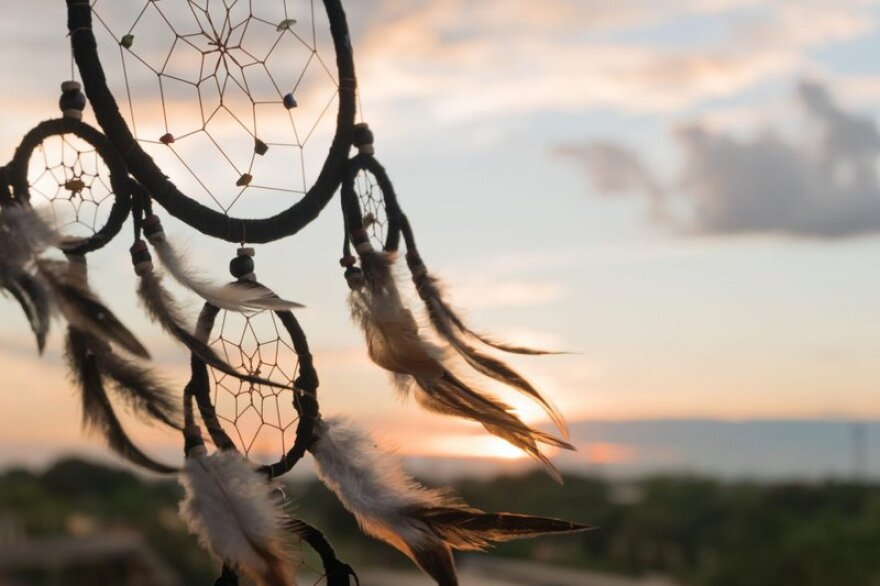The healing powers and practices of indigenous people here in Central New York are being put to use to help college students cope with stress, trauma and other issues. In what’s being called the first of its kind in the United States, Syracuse University hired Diane Shenandoah of the Oneida Nation as a healer on campus. The role in her native language is called Honwadiyenawa’sek, which translates as ‘one who helps them’.
“I'm really loving it, enjoying working with the students here. I have been an energy worker my whole life. When I was growing up, anybody that was in pain, back pain, knee pain, whatever, we'd all do our energy work on them, surround them, and they'd be like, ‘well, it feels better,’” says Shenandoah.
She’s brought some of those same practice s to students feeling stress due to school, loneliness, trauma over belonging. Native American students can feel as though they don’t belong, despite Native studies programs and student groups.
“Our indigenous students still have to tell teachers who they are. They still have to explain to classmates what they represent, and they still have to answer to stereotyped questions that come to them without knowledge,” says Neal Powless, an Onondaga Nation member who serves as the University Ombuds.
(Listen: Podcast episode on Indigenous Healer)
Shenandoah’s healer position is part of a series of changes brought to campus, some championed by students. Onondaga Danielle Smith helped start the Resilient Indigenous Action Collective, by and for indigenous people. And the group has made some steps toward its goals.
“So, for example, one of the solutions was that we wanted more indigenous faculty. We wanted an indigenous counselor therapist. Those two things have been met. I mean, we obviously still want more indigenous faculty,” explains Smith.
They haven’t made as much progress on changes to the land acknowledgement, spoken at the beginning of all University public meetings and presentations, which is designed to recognize that the land where Syracuse University sits was once part of Native American territory.
Other parts of the curriculum, including classes that all first-year students take, include recognition of past land rights.
“They should realize this was somebody else's home before they got here. You know? And I, my goal is for every person to see it. My goal is for every student, staff and faculty to see it, you know, to, to witness it,” hopes Shenandoah.
She’d like that to be further represented in the curriculum, including something she says is often completely eliminated from the teaching of history, the boarding schools. Some of these schools were recently discovered in Canada to be the unmarked graves of hundreds of native American children. And Shenandoah points out there were many more of these schools that separated families.
“There is healing that needs to be done on both sides, but you can't begin to heal if you aren't aware. And then once you're aware, you need to acknowledge, oh, this is what happened in order to heal. And then from there you move into forgiveness. But you cannot forgive without love. So that's the whole embodiment of what I feel like part of my role is here. That's a small part that I am trying to do,” adds Shenandoah.
Latest Episode of Podcast on Indigenous Healer on Campus
The latest episode of The Land You’re On podcast explains the role of the healer, as well as the situation for Native American students. There is also more on what local indigenous people would like others to know about this area and their history.
The Land You’re On: Acknowledging the Haudenosaunee is presented by Access Audio, and the Special Collections Research Center at the Syracuse University Libraries. The podcast is a limited edition, twelve-part series that will air on WAER’s website and all major streaming platforms. The series continues to reflect on the complicated history of our land, while also celebrating Haudenosaunee culture and traditions.



